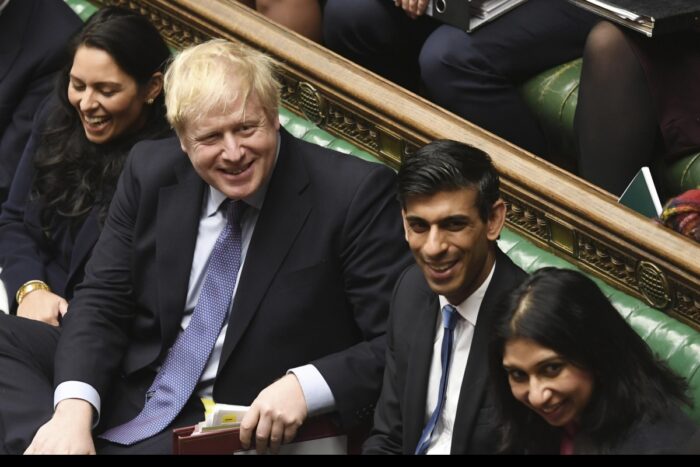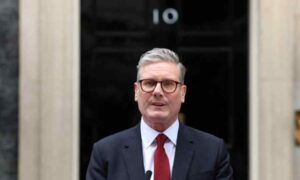
File Picture
As UK Prime Minister Boris Johnson flounders amid the coronavirus pandemic, Rishi Sunak has been a beacon of calm and competence, intervening swiftly to spend billions of pounds supporting jobs as the economy went into lockdown free fall, The New York Times reported, in a report by news agency ANI.
Sunak, the son-in-law of the co-founder of Infosys NR Narayana Murthy, was virtually unknown about 10 months ago.
Sunak’s vertiginous rise has surprised almost everyone in British politics — in all likelihood even the man who promoted him, Prime Minister Boris Johnson, whose approval ratings have plummeted during the pandemic, The New York Times reported.
“Rishi Sunak has the strengths that the Prime Minister so conspicuously lacks, not only basic competence, but a grasp of detail…and no one has mounted such an obvious, in your face, social media campaign as Rishi Sunak,” Tim Bale, professor of politics at the Queen Mary University of London, was quoted as saying.
Citing a recent poll of party members by the Conservative Home website, The New York Times said that Sunak, 40, ranked top of cabinet satisfaction ratings, while Johnson was almost bottom of the list.
However, a poll conducted last December by Professor Bale had said, “Just five out of 1,191 named Rishi Sunak.”
“I’m not sure that all of them spelt his name correctly,” he added. Amid the coronavirus pandemic, while Johnson staggered, Sunak became a “beacon of calm and competence”. In a recent virtual party conference, Sunak praised Johnson and also announced the tough economic choices that will be taken for the country.
The New York Times reported that his fame has continued to rise and his appeal among nonpartisan Britons has been burnished through slick social media posts on Instagram and Twitter designed around “Brand Rishi”.
The reason given for his mass appeal is that his posts are not the old style of political advertisements but has a stylish photo of him endorsing a policy with his distinctive signature, rather like a sporting celebrity might promote an expensive fitness accessory, The New York Times said.
In comparison to the earlier Chancellor of the Exchequer Sajid Javid, who had resigned as he did not support putting curbs on his right to hire his own advertisers, Sunak agreed.
“In Britain, the relationship between the Prime Minister and Chancellor — although a central pivot of government — is often one of rivalry and tension. So the idea in February was to ensure that there was one centre of power on economic policy: in No. 10,” The New York Times said.
While Sunak was elected by Johnson for as he is “adept and diligent”, he also stands popular among the multiracial community of Britain
[the_ad id=’22722′]


















